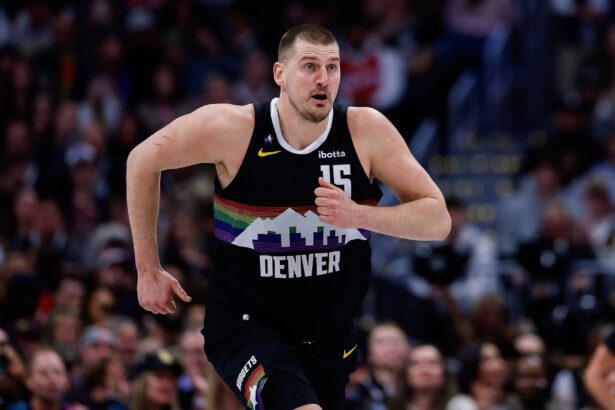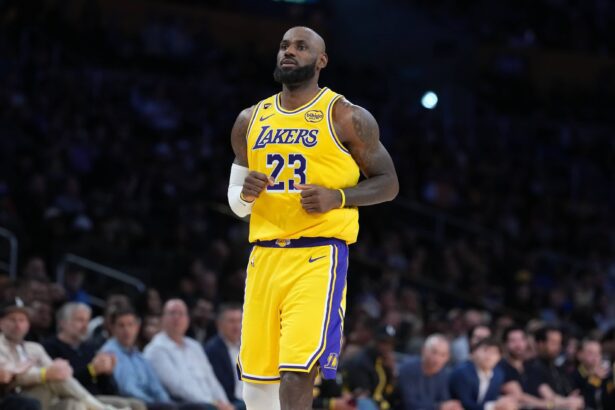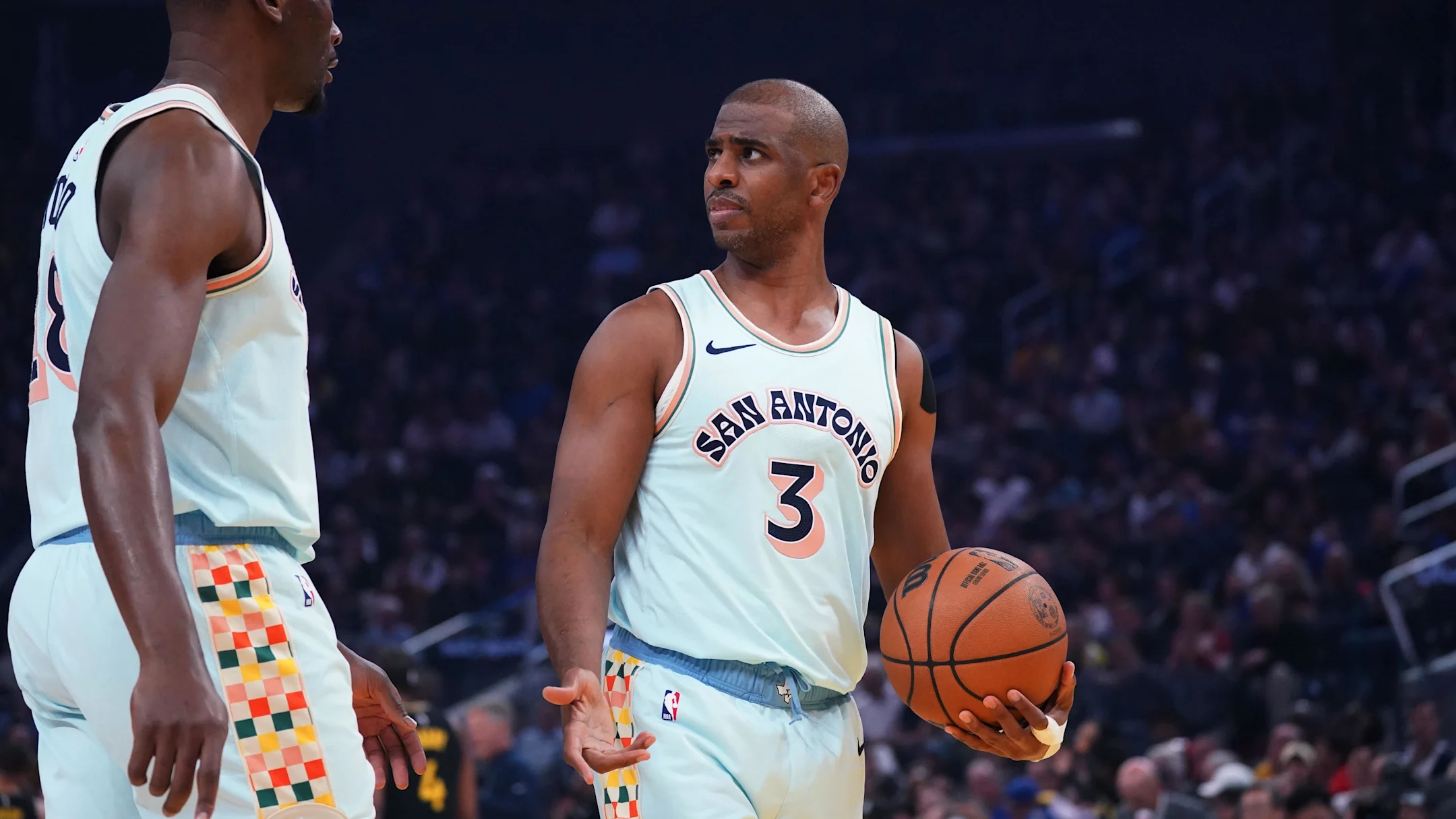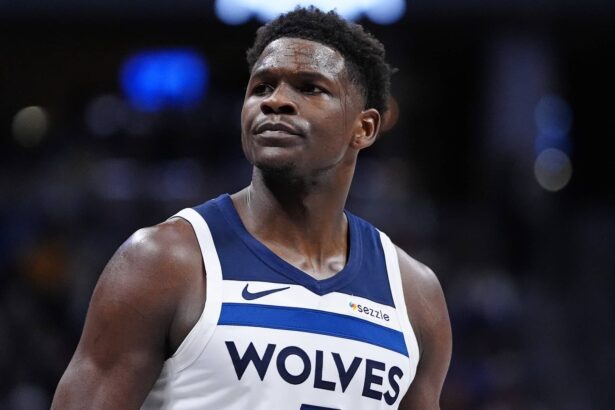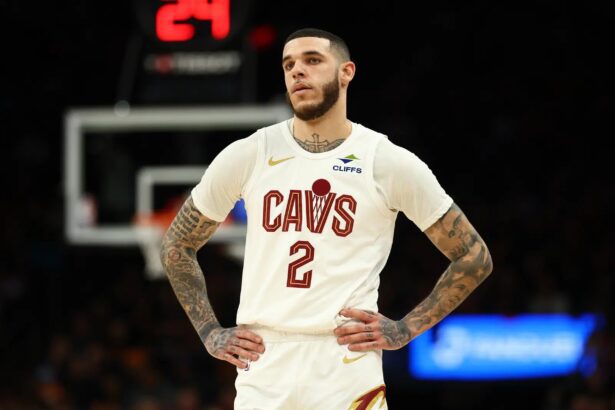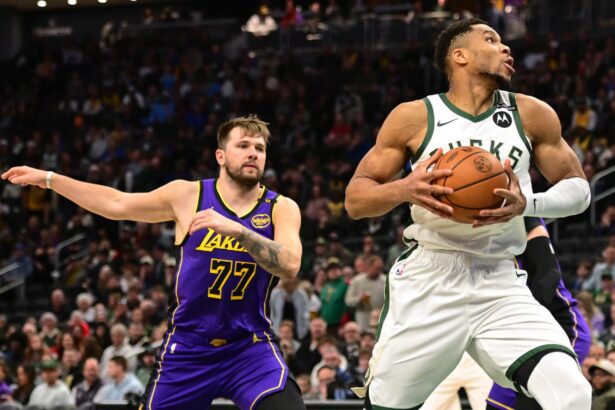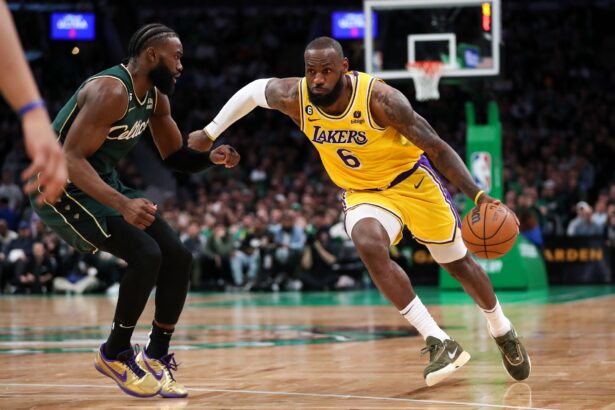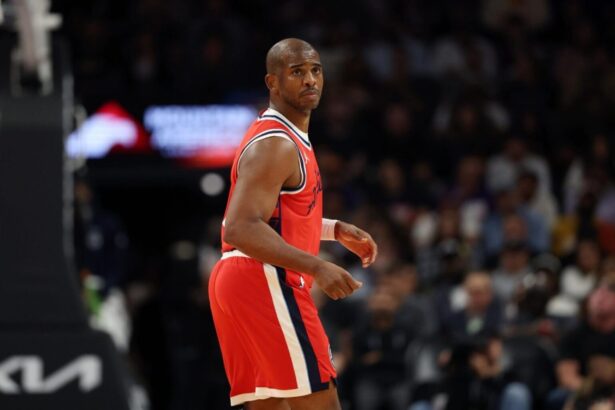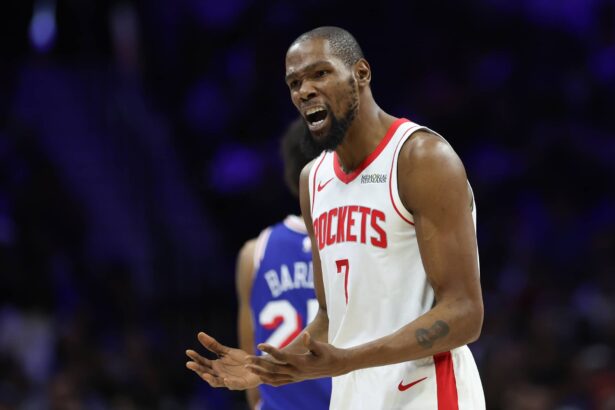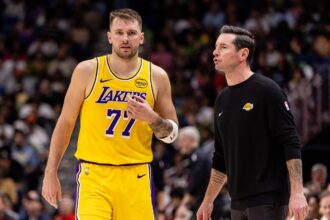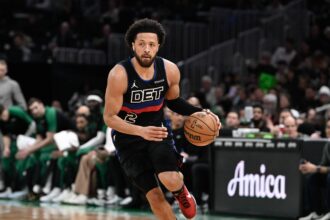In today’s league, if you can score about 20 points per game, you can land a $100 million deal. It doesn’t quite equate to the players that can score at least 30 points per game. Those players are worth a lot more because accomplishing that each night is a tough task. Despite the league changing up their rules in 2005, we haven’t seen as many 30-point per game scorers in the modern age as we thought we would.
- Jack Twyman – 1 Season
- Walt Bellamy – 1 Season
- Bob Pettit – 1 Season
- Tiny Archibald – 1 Season
- Pete Maravich – 1 Season
- Moses Malone – 1 Season
- World B. Free – 1 Season
- Bernard King – 1 Season
- Karl Malone – 1 Season
- Tracy McGrady – 1 Season
- Dwyane Wade – 1 Season
- Russell Westbrook – 1 Season
- Damian Lillard – 1 Season
- Rick Barry – 2 Seasons
- George Gervin – 2 Seasons
- Dominique Wilkins – 2 Seasons
- LeBron James – 2 Seasons
- Kevin Durant – 2 Seasons
- Bradley Beal – 2 Seasons
- Steph Curry – 2 Seasons
- Elgin Baylor – 3 Seasons
- Bob McAdoo – 3 Seasons
- Kobe Bryant – 3 Seasons
- James Harden – 3 Seasons
- Jerry West – 4 Seasons
- Kareem Abdul-Jabbar – 4 Seasons
- Adrian Dantley – 4 Seasons
- Allen Iverson – 4 Seasons
- Oscar Robertson – 6 Seasons
- Wilt Chamberlain – 7 Seasons
- Michael Jordan – 8 Seasons
- Next
- The Best NBA Player Of All Time From Every State: New York Is Home To The GOAT
- NBA’s Leading Scorer By Decade: Wilt Chamberlain Almost Scored 25k Points, Karl Malone Surprisingly Led The 90s
- Most Points Scored By One Player Against Every NBA Team: Wilt Chamberlain 100-Point Game Will Never Be Broken
- Kobe Bryant’s Points Per Game For Each Season: Black Mamba Was Unstoppable In His Prime
- Only 6 NBA Players Have Averaged More Than 27 Points Per Game In Their Career: Michael Jordan Is Better Than Wilt Chamberlain By 0.05 Points
In 2005, the NBA introduced new rules regarding curtail hand-checking, clarifying blocking fouls, and calling of defensive three seconds to open up the game. It has raised overall scoring for numerous players in the end. With that said, only 11 players have averaged at least 30 points per game since 2000. That comes out to about one player every two years.
Throughout the entire history of the NBA, these are the players who have scored 30 points per game in a season.
Jack Twyman – 1 Season
1959-60 – 31.2 PPG
Twyman spent 11 seasons in the NBA and spent his entire career with the Rochester/Cincinnati Royals. Twyman and Wilt Chamberlain became the first players in NBA history to average over 30 points per game in a season. During the season, he scored a career-high 59 points in a game. Twyman finished his career 20th all-time in points at the time and eventually had his No. 27 retired by the Kings.
Walt Bellamy – 1 Season
1961-62 – 31.6 PPG
Bellamy is a former No. 1 overall pick from 1961, who arguably had one of the best rookie seasons in NBA history. Bellamy’s 31.6 points per game are second all-time for points per game during a rookie season, trailing Chamberlain’s 37.6 points per game. No rookie has scored more than Bellamy’s 973 field goals during the season. He also led the NBA in field goal percentage in his rookie season and had 23 points and 17 rebounds in the All-Star Game.
Bob Pettit – 1 Season
1961-62 – 31.1 PPG
The Hawks slipped in the team standings, but Pettit stepped up in the individual performance. Pettit scored a career-high 31.1 points per game during this season. Given the greatness of his career, which included being the first NBA player to eclipse 20,000 career points, you would think he averaged more than 30 points per game more than once. Instead, his 20,880 career points featured multiple seasons with at least 20 points per game.
Tiny Archibald – 1 Season
1972-73 – 34.0 PPG
Archibald had a double-dose of success this season. He led the NBA in scoring and assists, which made him the only player at the time to ever win both categories in the same season. His scoring average set a record for most points per game by a point guard, which remains the record today. It’s one of the best seasons we saw from a player in a King’s uniform.
Pete Maravich – 1 Season
1976-77 – 31.1 PPG
This was the most productive season for Maravich. He led the league in scoring and scored over 40 points 13 times. That also included four 50-point games. His best performance came against the Knicks, where he scored 68 points, which was the most points by a guard in a single game. This record has since been broken, but it was truly spectacular given that the only two players that had ever scored more points in a game were Wilt Chamberlain and Elgin Baylor at the time. What made it even better was that Baylor was the head coach at the time.
Moses Malone – 1 Season
1981-82 – 31.1 PPG
Malone won his second MVP trophy when he averaged 31.1 points and 14.7 rebounds per game. He repeated as the league leader in rebounds but was the runner-up in the scoring race to George Gervin. Malone was pretty busy this year, as he also led the league in offensive rebounds and minutes played. At the end of the season, he set a new career-high in points in a single game with 53 points against the San Diego Clippers.
World B. Free – 1 Season
1979-80 – 30.2 PPG
During both of the 1978-1979 and 1979-1980 seasons, the two best scorers in the league were Free and George Gervin. Both times, Gervin beat out Free for the scoring title. Over 13 seasons, Free averaged 20.3 points per game, solidifying his status as a solid scorer. His best season came in 1979-1980, and he also averaged 4.2 assists and 3.5 rebounds.
Bernard King – 1 Season
1984-85 – 32.9 PPG
This season wasn’t just his best year scoring in his career. It also featured a historic moment in NBA history. King scored 60 points on Christmas Day against the Nets in a losing effort. He became the 10th player in NBA history to score 60 or more points in a game. By halftime, King had scored 40 points and he shot 19 of 30 from the field. It remains the record for most points scored on Christmas Day.
Karl Malone – 1 Season
1989-90 – 31.0 PPG
Malone set the tone early this year by scoring 40 points and 16 rebounds. His highlights included scoring 52 points over the Charlotte Hornets. He scored a career-high 61 points in a win over the Bucks. In the game, he made 21 of 26 field goals and 19 of 23 free throws. It was the most points scored by a Jazz player since the team moved to Utah. He led the team in scoring in 24 of the last 26 games and helped Utah win 55 games.
Tracy McGrady – 1 Season
2002-03 – 32.1 PPG
McGrady won two scoring titles in his career, but his only title at over 30 points per game came in 2002-2003. McGrady also averaged 6.5 rebounds and 5.5 assists per game. He finished a career-high fourth in the MVP voting and led the Magic to the postseason. Unfortunately, this season is best remembered for McGrady guaranteeing the Magic to beat the Pistons after taking a 3-1 lead only to fall in seven games.
Dwyane Wade – 1 Season
2008-09 – 30.2 PPG
Wade rode the momentum from his summer. Wade led the 2008 Olympic team in scoring and to a Gold medal. Then, he averaged a league-leading 30.2 points per game to win his first scoring title. Wade became the only player to reach 2,000 points, 500 assists, and 150 steals in the same season with a height under 6 foot 5. Wade nearly broke Glen Rice’s single-game points record of 56 by scoring 55 points against the Knicks.
Russell Westbrook – 1 Season
2016-17 – 31.6 PPG
Westbrook recorded 42 triple-doubles during the season to break Robertson’s record for single-season triple-doubles. It was a historic performance that saw him score 18 of his 50 points in the last five minutes, including a 36-foot buzzer-beater over the Nuggets. That was his third 50-point triple-double of the season, which is the most by any player in NBA history.
Damian Lillard – 1 Season
2019-20 – 30.0 PPG
Despite losing to the Nets, Lillard scored 60 points in early November. He would then surpass that former career-high with 61 points in an overtime win over the Warriors in January. From late January to early February, Lillard had a six-game stretch where he averaged 48.8 points per game. Lillard later became the “Bubble MVP” for his play late in the season. His 61 points in the bubble gave him his third 60-point game of the season. Only Lillard and Chamberlain are the only players in history to have three such games.
Rick Barry – 2 Seasons
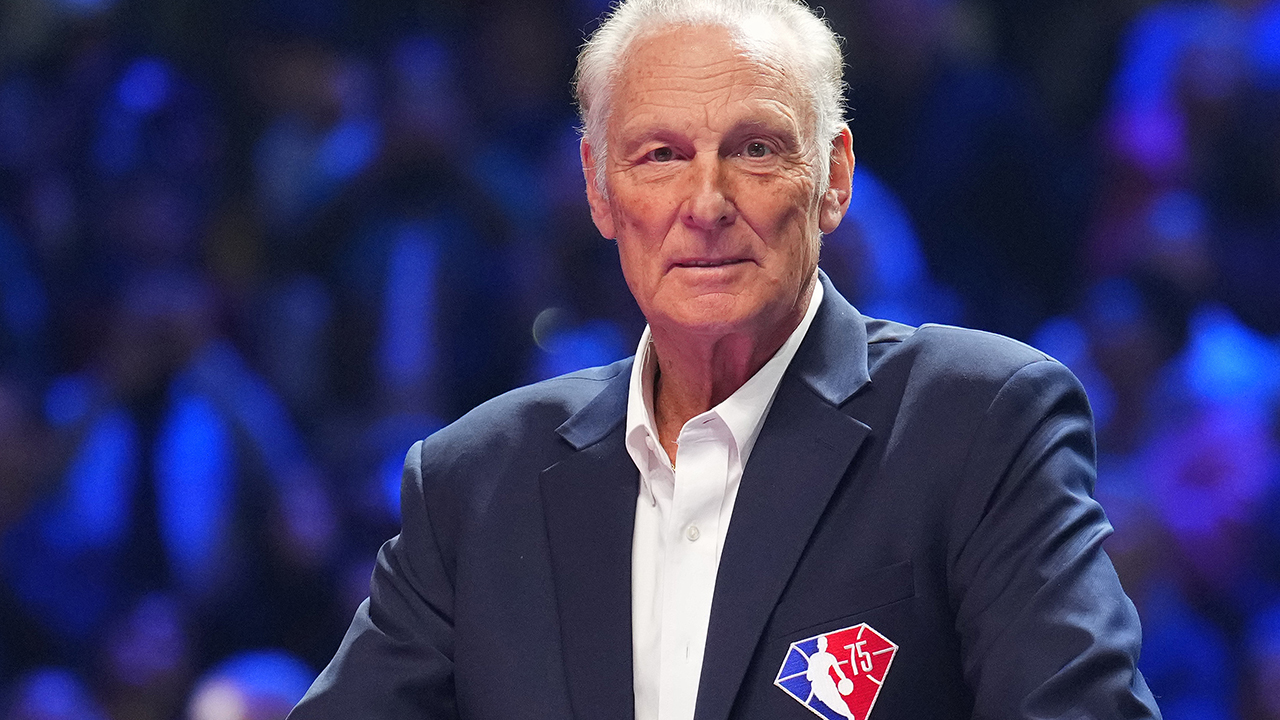
1966-67 – 35.6 PPG
1974-75 – 30.6 PPG
Barry was a great all-around player during his playing days. He ranks as the all-time leading scorer in ABA history, averaging 30.5 points per game. He carried that prolific scoring into the playoffs, where his 36.3 points per game are the most in NBA Finals history. Barry is also the only player to reach 50 points in a Game 7 playoffs.
The first time Barry averaged over 30 points, he also lead the league in scoring. He won the 1967 All-Star Game MVP with 38 points. His regular season output remains a top-10 regular season output. His other time was one of the best seasons displayed by a forward at the time. Barry led the league in scoring, free-throw percentage at 90.4%, and steals at 2.9. With Barry leading the way, the Warriors won the division.
George Gervin – 2 Seasons
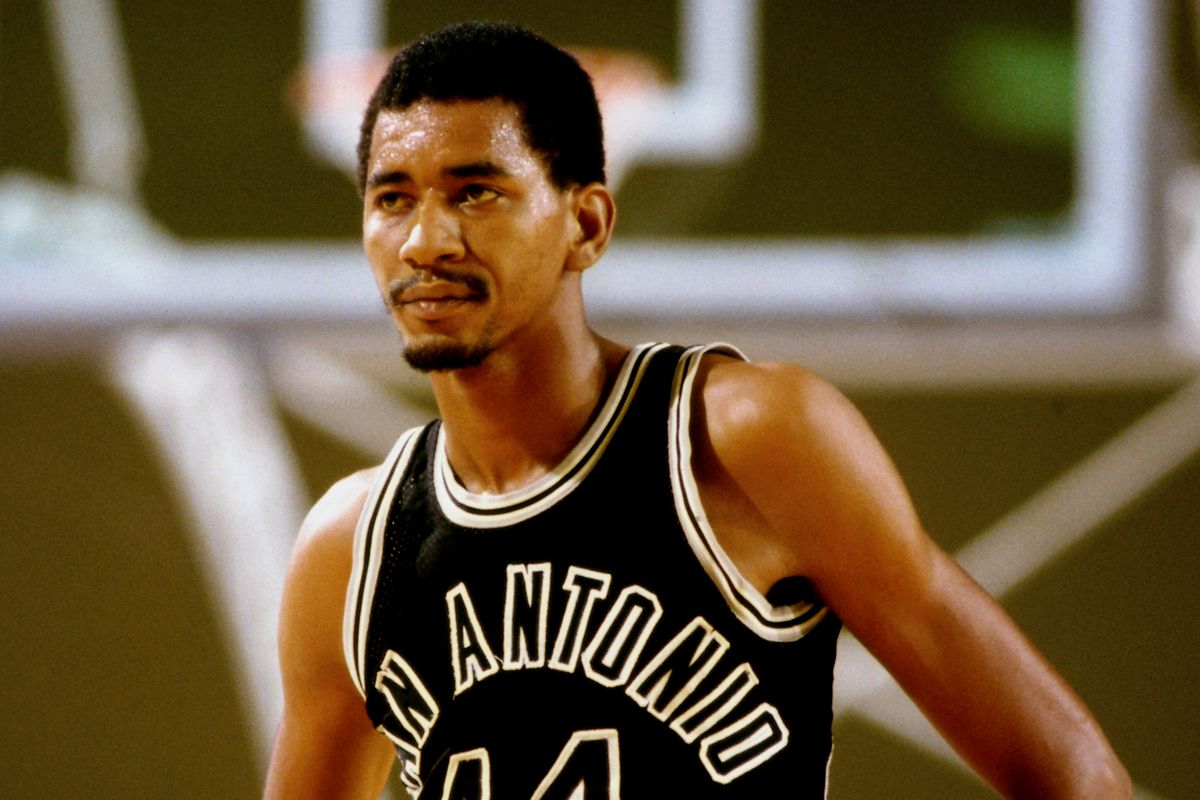
1979-80 – 33.1 PPG
1981-82 – 32.3 PPG
Gervin had to fend off World B. Free for his scoring titles, but he still came out on top. Before a special player named Michael Jordan came along, Gervin had the most scoring titles of any guard in league history. During the 80s, the Spurs were contenders for the NBA championships and often battled the Los Angeles Lakers. The Spurs would not have been in most of those games without the aid of Gervin.
Gervin is one of three players that finished his Spurs career with over 20,000 career points. When he retired, he was the all-time leading scorer in team history. That has since been broken by Tim Duncan.
Dominique Wilkins – 2 Seasons
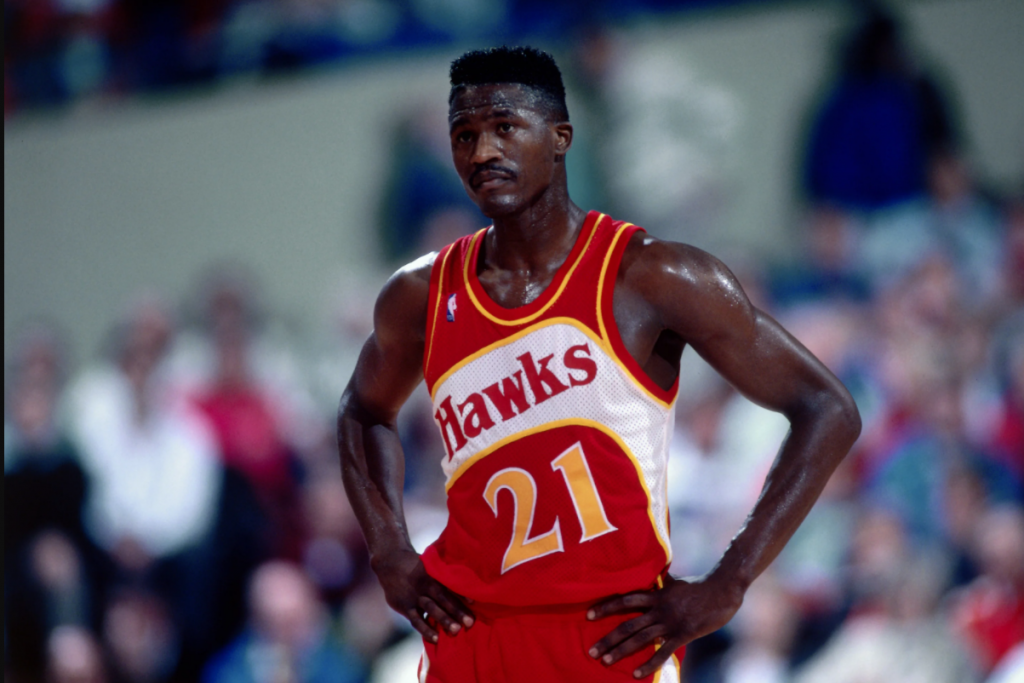
1985-86 – 30.3 PPG
1987-88 – 30.7 PPG
Wilkins won the scoring title in 1986 with 30.3 points per game. It was the first time he was named to the All-Star Game and was voted to the All-NBA First Team. The season was special as Atlanta won 16 more games than the previous season.
Wilkins had another great year in 1987-1988 but lost out on the scoring title to Jordan, who scored about five more points than him. Jordan also beat out Wilkins in the Slam Dunk Contest. At the end of the season, Wilkins earned All-NBA Second Team and was named NBA Player of the Week three times, which was the first time a player was named three times in franchise history.
LeBron James – 2 Seasons
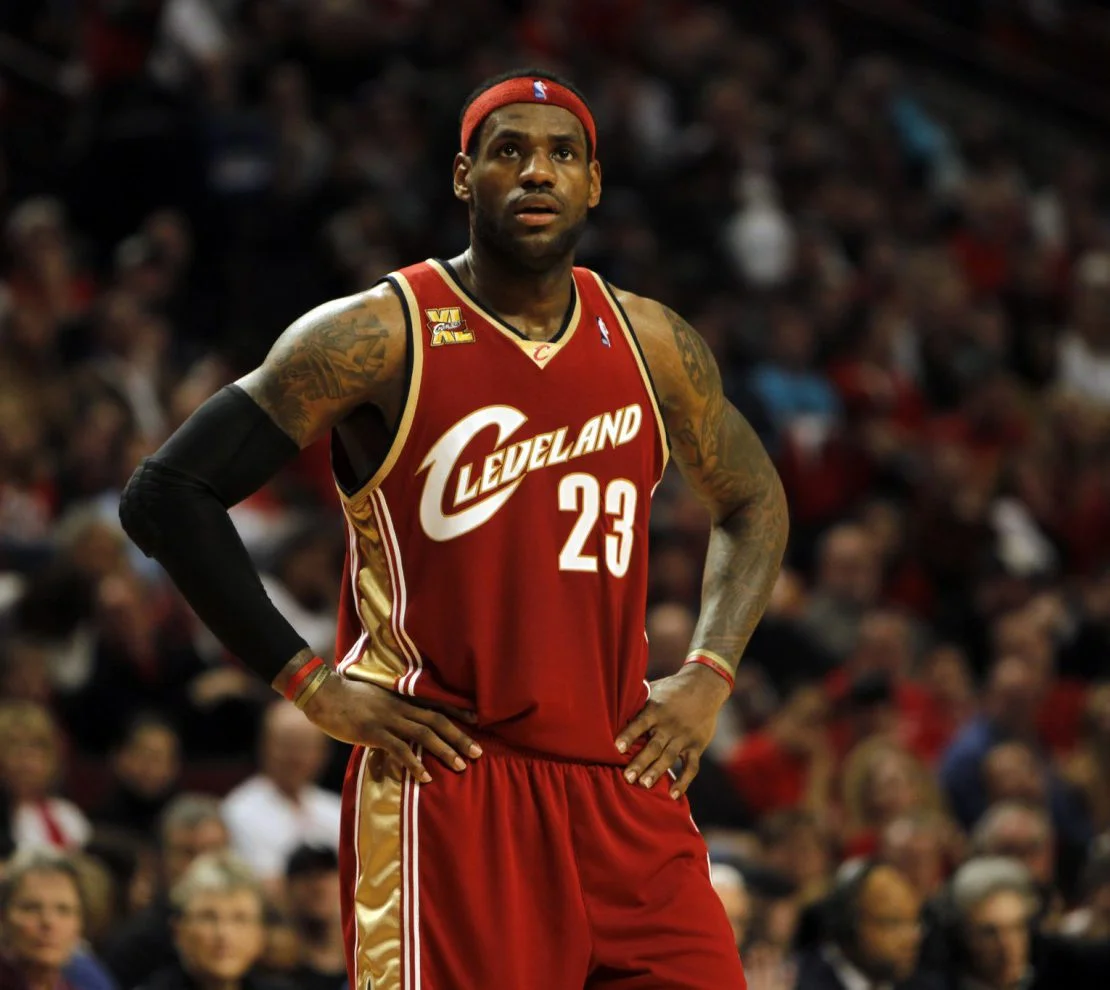
2005-06 – 31.4 PPG
2007-08 – 30.0 PPG
In any other season, James would have likely won a scoring title with this kind of production. Instead, he was beaten out by two masterful seasons from Allen Iverson and Kobe Bryant. James did win MVP at the All-Star Game with 29 points. He finished second in the MVP voting, losing out to Steve Nash despite leading Cleveland to their first playoff appearance in eight years.
During the 2007-2008 season, James was named All-Star Game MVP again. He also became the all-time leading scorer in team history by surpassing Brad Daughtery and doing so over 100 less games. His 30.0 points per game marked his first ever scoring title as well.
Kevin Durant – 2 Seasons

2009-10 – 30.1 PPG
2013-14 – 32.0 PPG
Durant is widely regarded as one of the best players of his generation. He is best known for his scoring abilities, which led him to win four scoring titles from 2010 to 2014. He is only one of two players to ever win four scoring titles in five years.
Durant is also one of the best isolation players we have ever seen. The only surprising factor is that Durant has not averaged more than 30 points per game more than two times. Given that Durant has played with special players like Russell Westbrook, Steph Curry, and James Harden, that could factor in that. With that said, it doesn’t diminish how special Durant is as a player.
Bradley Beal – 2 Seasons
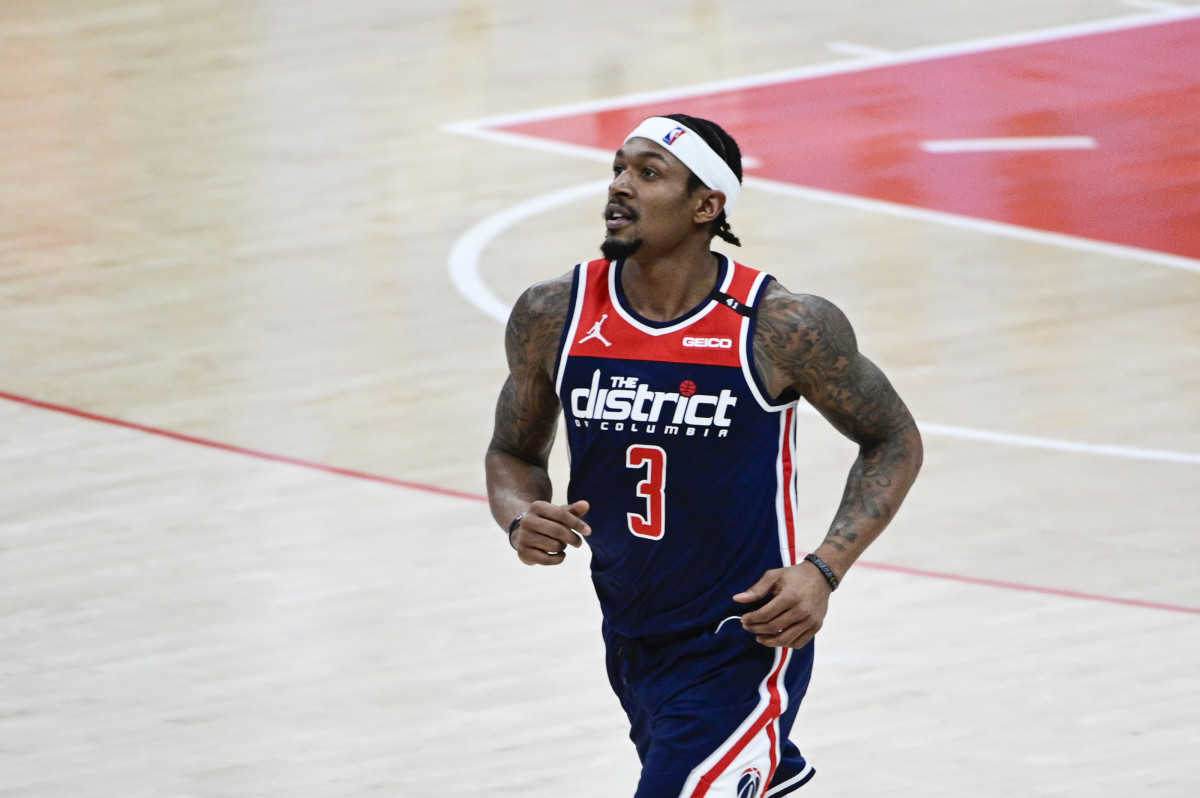
2019-20 – 30.5 PPG
2020-21 – 31.3 PPG
Beal has come a long way since being the “right-hand man” to John Wall. Beal is the man in Washington. Beal became the first player since Kobe Bryant in 2007 to score consecutive 50-point games during the 2019-2020 season. In February, he averaged a league-high 36.2 points per game, which included 26 points or more in 21 consecutive games.
Last year, Beal nearly won the league scoring title and tied Gilbert Arenas’ franchise record for points in a game with 60. In the end, Beal just missed out on winning the scoring crown had Steph Curry not embarked on a historic run. It would have been the first time a player in franchise history won a scoring title.
Steph Curry – 2 Seasons
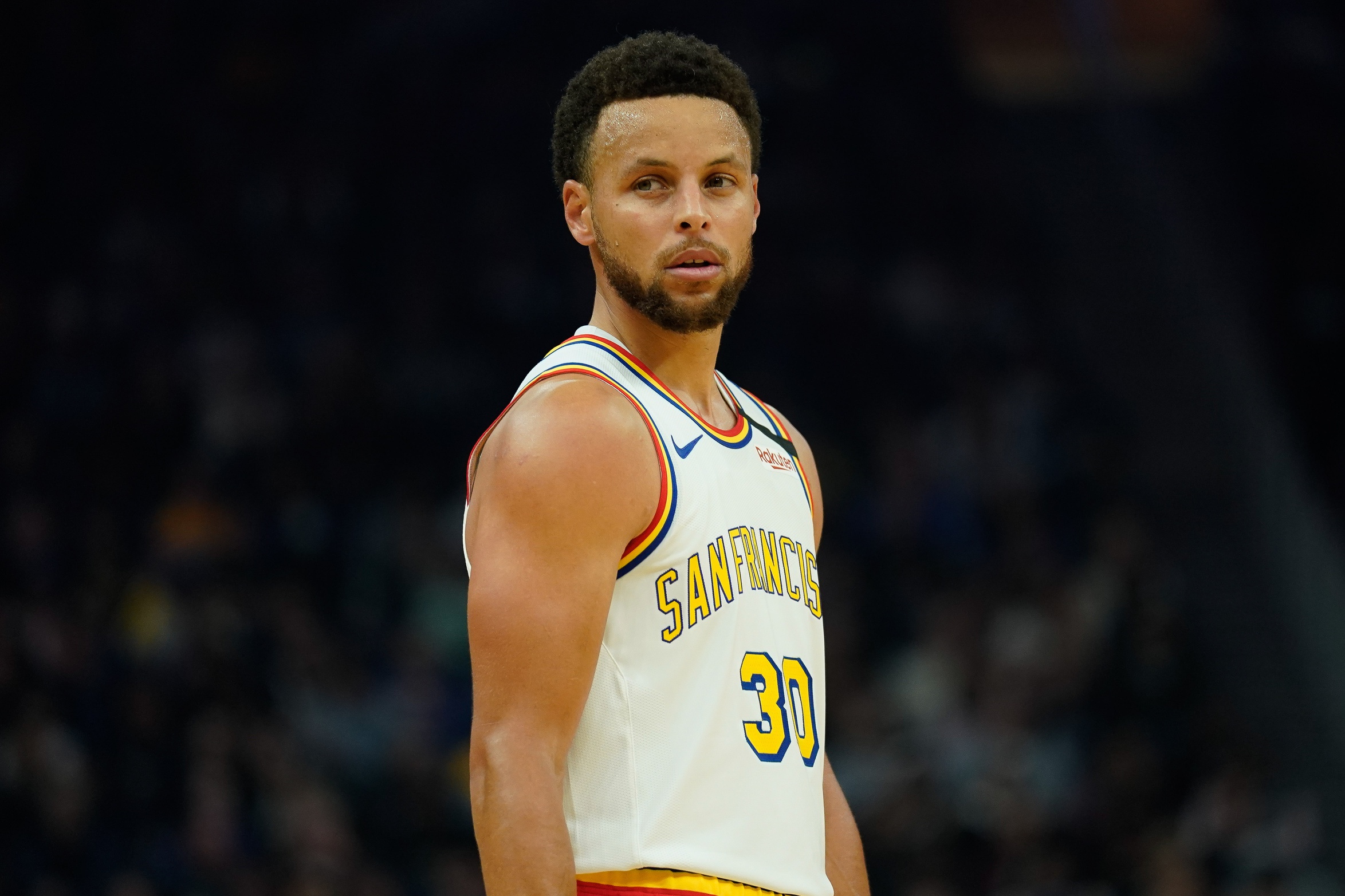
2015-16 – 30.1 PPG
2020-21 – 32.0 PPG
Speaking of Curry, both of his 30-point seasons featured winning the scoring title. His first time saw him lead the league in scoring, while also shooting 50-40-90. Curry became the first unanimous MVP by shooting so well. It was also the same year the Warriors won an NBA record 73 games in the regular season.
Last year, Curry had a historic month of April, where he averaged 37.3 points per game on 51.8% shooting. He scored 30 or more points in 13 of the 15 games. He also became the first player to average at least 35 points per game and shoot 50-40-90 for a month. He held off Beal for the scoring title on the last game of the year by scoring 46 points.
Elgin Baylor – 3 Seasons
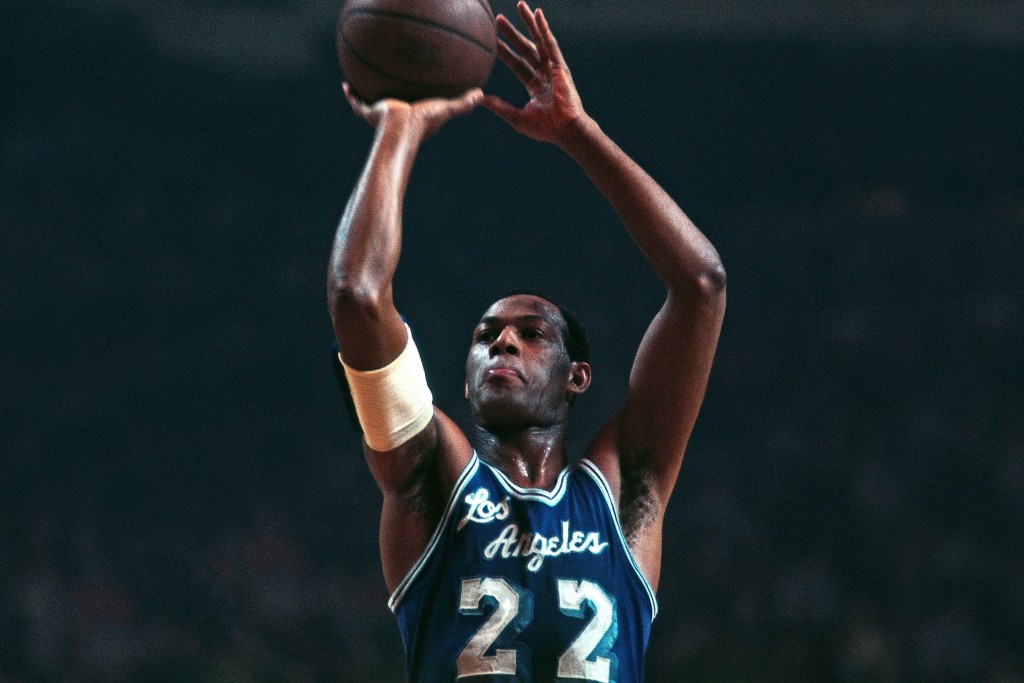
1960-61 – 34.8 PPG
1961-62 – 34.0 PPG
1962-63 – 31.4 PPG
From 1961 to 1963, Baylor averaged at least 30 points per game. The first time, Baylor set a new NBA scoring record with 71 points in a win over the Knicks. Baylor broke his record of 64 points, which he set the previous season. His 34.8 points per game was and remained his career-high for his career.
The following year, Baylor played just 48 games, but still scored 1,800 points. Later that season, Baylor sets an NBA Finals record for 61 points in a game against the Boston Celtics. That record remains an NBA record until today. Michael Jordan’s 55 points in 1993 is the closest we have seen in recent years.
The final time, Baylor shot his best percentage of 45.3% from the field. What Baylor and Jerry West did to opposing teams was almost unfair. With West averaging 27.1 points per game, the Lakers won 53 games. Both players were named All-NBA First Team, but the Lakers lost to the Celtics in the NBA Finals.
Bob McAdoo – 3 Seasons
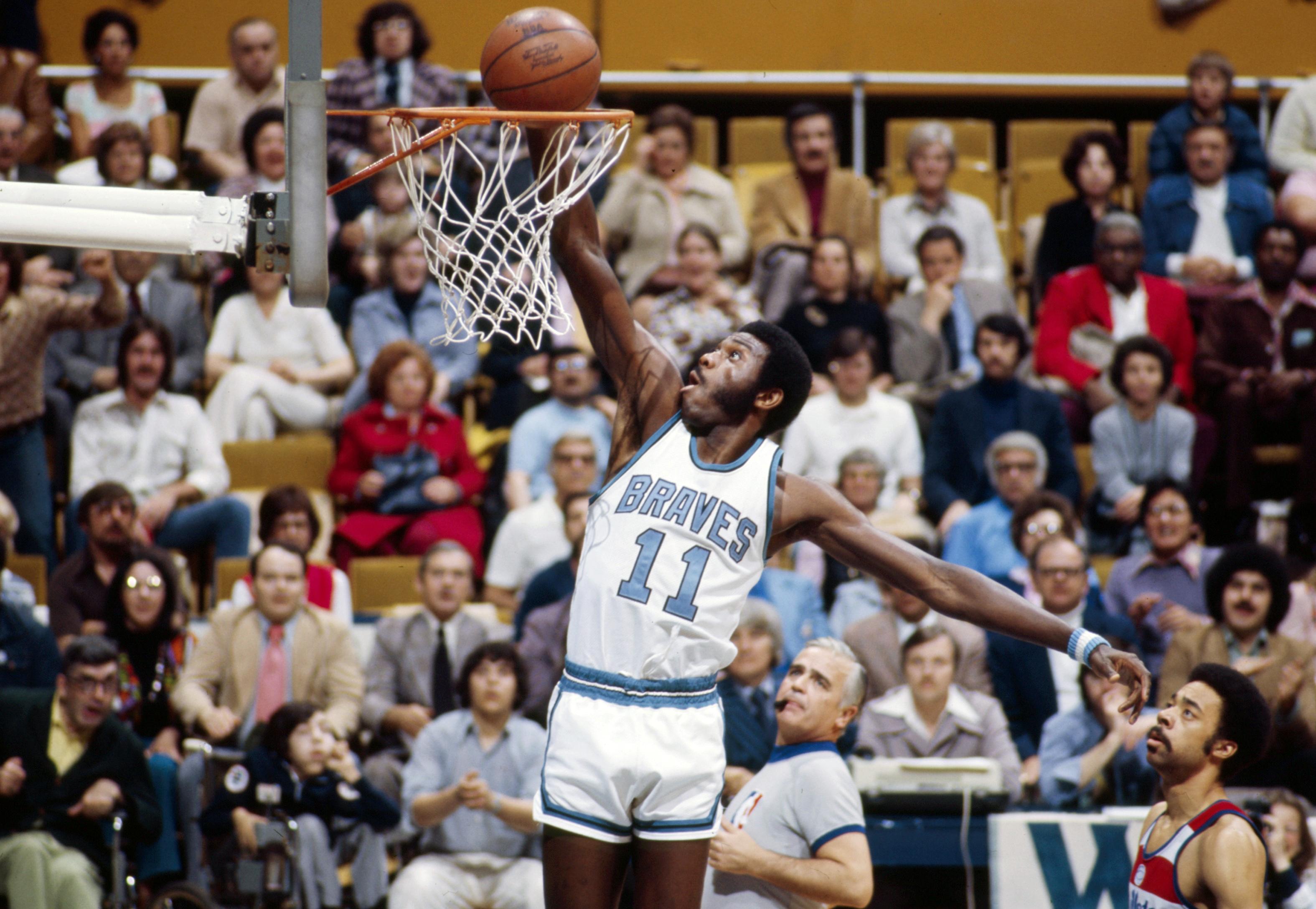
1973-74 – 30.6 PPG
1974-75 – 34.5 PPG
1975-76 – 31.1 PPG
McAdoo earned the first of his three consecutive scoring titles in his second season. McAdoo’s second season was also the last time we have ever seen a player average both 30.0 points and 15.0 rebounds per game. He also led the league in field goal percentage.
The following year, McAdoo won the MVP with 34.5 points, 14.1 rebounds, and 2.1 blocks per game. McAdoo’s greatest moment likely came when he recorded at least 50 points and 21 rebounds in a playoff game. When Anthony Davis had a 59-point, 20-rebound game, he joined McAdoo as the only players to have ever done it before their 23rd birthday.
The following year, McAdoo led the league in scoring for the third straight season. It was the third straight year the Braves made the playoffs too. The Braves defeated the 76ers in the postseason to give the team their first playoff series win in franchise history.
Kobe Bryant – 3 Seasons

2002-03 – 30.0 PPG
2005-06 – 35.4 PPG
2006-07 – 31.6 PPG
In 2003, Bryant set an NBA record for three-pointers in a game with 12 against Seattle in January. The month was special as Bryant averaged 43.4 points per game, which featured nine consecutive games of at least 40 points. It was the eighth highest single month scoring average ever and the most since Chamberlain.
In 2006, Bryant scored 40 points in at least 27 games, which featured his 81 points against Toronto. It broke the single-game record of 71 set by Elgin Baylor. It remains the second-most point scored in a game in NBA history. Later that month, he became the first player since 1964 to score 45 points or more in four consecutive games, joining Chamberlain and Baylor as the only players to accomplish that.
In 2007, Bryant became the youngest player at 29 years and 122 days to reach 20,000 career points. During the season, Bryant scored a season-high 65 points against the Trail Blazers, which was the second-best scoring performance of his career. He followed that game with 50 and 60 points to become the second Laker ever to score 50 points in three straight games. With his 50 points against the Hornets the next day, he joined Chamberlain as the only player in NBA history with four straight 50-point games.
James Harden – 3 Seasons
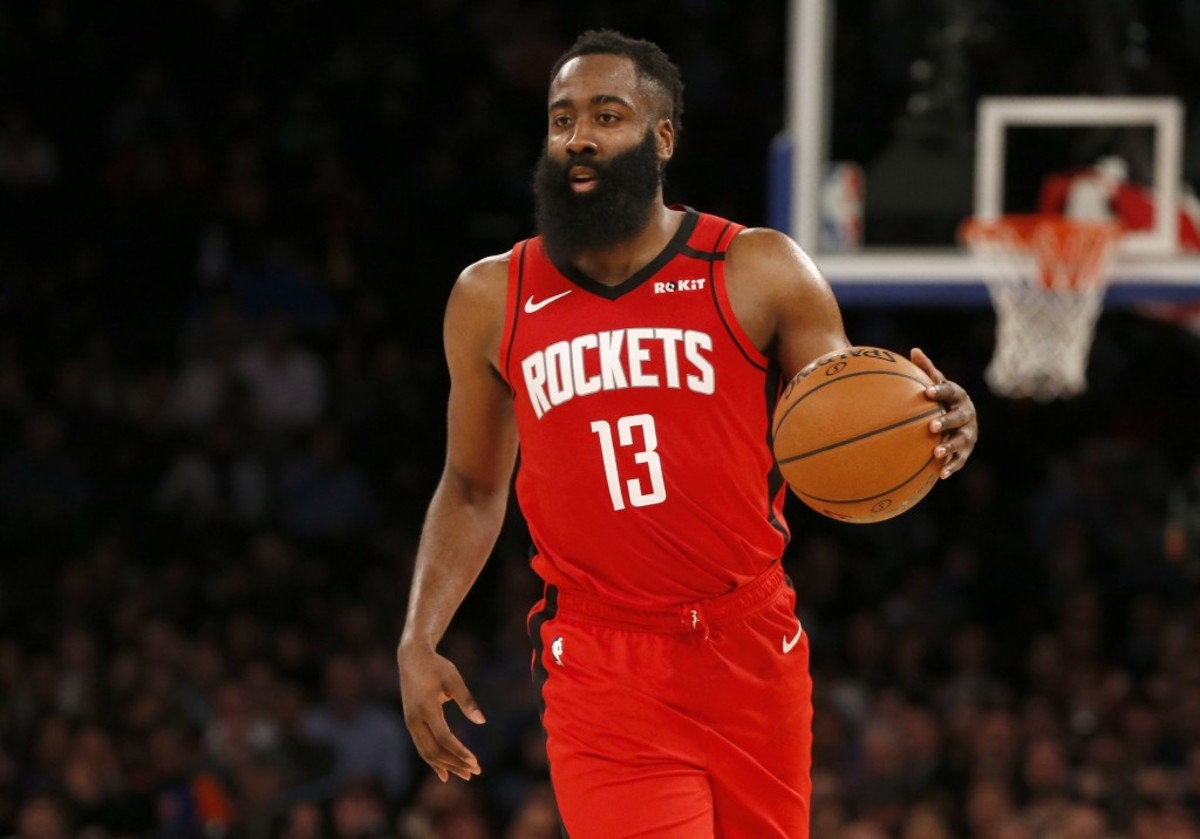
2017-18 – 30.4 PPG
2018-19 – 36.1 PPG
2019-20 – 34.3 PPG
Harden found ways of scoring points everywhere on the floor. Harden drew fouls and took care of business at the free-throw line. He is the all-time NBA leader in unassisted three-point makes. He is also the all-time leader in completed four-point plays, passing Jamal Crawford’s former record of 54. From 2018-to 2020, there wasn’t a better scorer in the league.
During his MVP season in 2018, he became the first player in NBA history to score 60 points in a triple-double. Harden also broke Calvin Murphy’s single-game record of 57 points set in 1978. It was his fourth 50 point game of the season. The Rockets eventually won a franchise-record 60 games in the season.
The following season, Harden had a career-high for points per game. He became the third player in NBA history to record 2,700 points and 500 assists in a single season. In 2019-2020, he became the only player in NBA history with the most consecutive seasons with 20+ games scoring 40 or more points since Wilt Chamberlain.
Jerry West – 4 Seasons
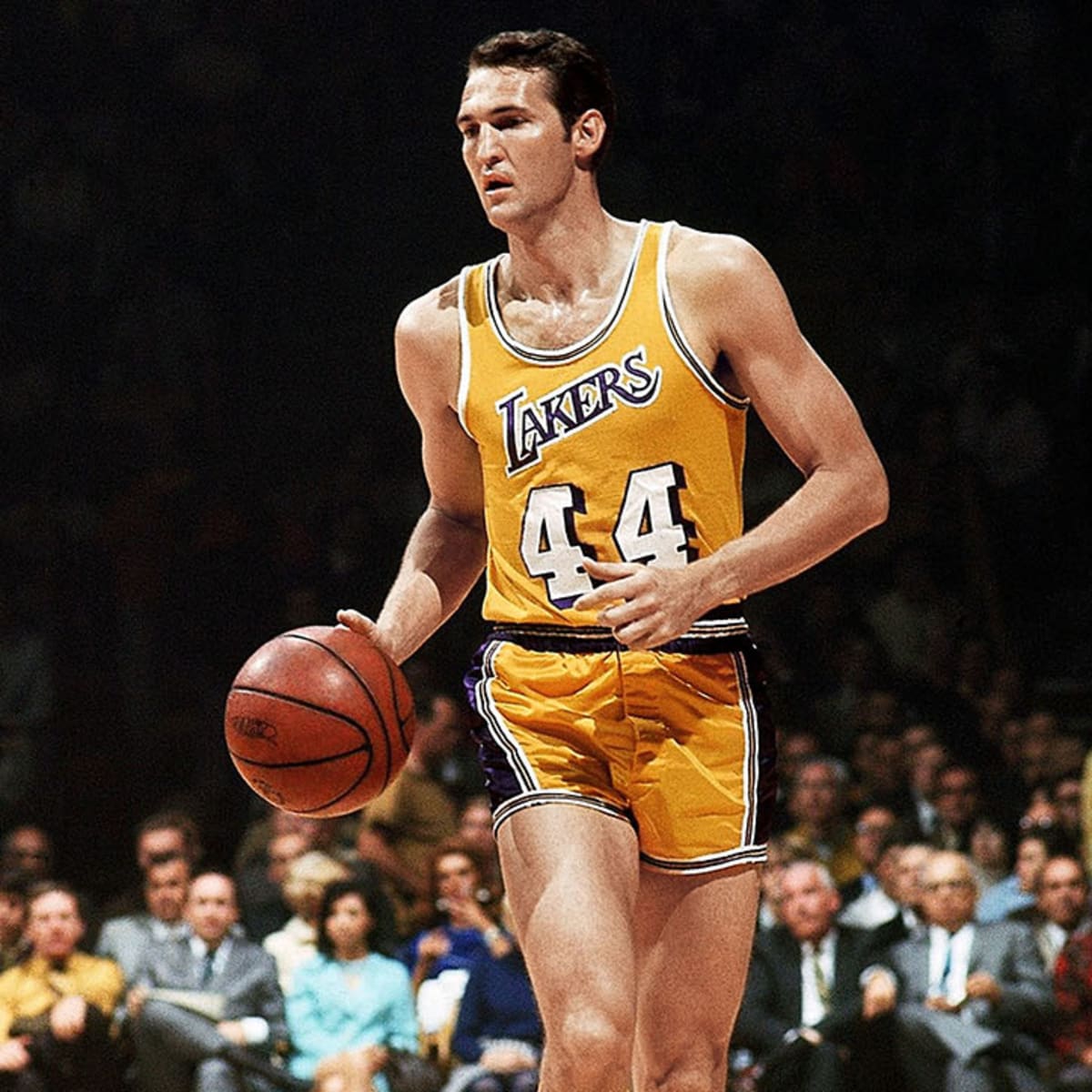
1961-62 – 30.8 PPG
1964-65 – 31.0 PPG
1965-66 – 31.3 PPG
1969-70 – 31.2 PPG
In West’s second season, he scored over 30 points per game with Elgin Baylor being limited due to being called up by the U.S. Army Reserves. Baylor was limited to 48 games, while West became known for hitting important late-game shots, capturing the nickname Mr. Clutch by announcer Chick Hearn.
With Baylor back, West still scored at a high rate and scored over 30 points per game in 1964-1965. He finished as the league runner-up in scoring. In the playoffs, West averaged 40.6 points per game. The following season, West set an NBA record with 840 made free throws en route to scoring a career-high in points.
The final time West averaged over 30 points was when a new coach came to town. Joe Mullaney took over, while Chamberlain missed practically the whole season with an injured knee. West took over with Chamberlain out and led the NBA in scoring, while also making All-NBA First Team and All-Defensive First Team.
Kareem Abdul-Jabbar – 4 Seasons

1970-71 – 31.7 PPG
1971-72 – 34.8 PPG
1972-73 – 30.2 PPG
1974-75 – 30.0 PPG
The all-time leading scorer in the league managed all his 30-point scoring seasons with the Milwaukee Bucks. With the Bucks, Abdul-Jabbar led Milwaukee to a championship, won the MVP Award, and once scored 2,596 points in a season. All four of these seasons saw him shoot at least 50% from the field and pull down at least 14 rebounds per game.
After winning Finals MVP in 1971, Abdul-Jabbar repeated as the scoring champion and scored 2,822 total points. He became the first player to be named MVP twice in his first three years. He was among the top five in scoring, rebounding, blocked shots, and field goal percentage that season. He then finished off the trifecta with his third straight 30-point season the following year.
His last 30-point season featured a lot of ups and downs. He missed 16 games to injuries and the Bucks were 3-13 during those games. The season saw trade rumors swirling around Abdul-Jabbar. By the end of the season, the Bucks missed the playoffs and he confirmed his desire to play in another city.
Adrian Dantley – 4 Seasons
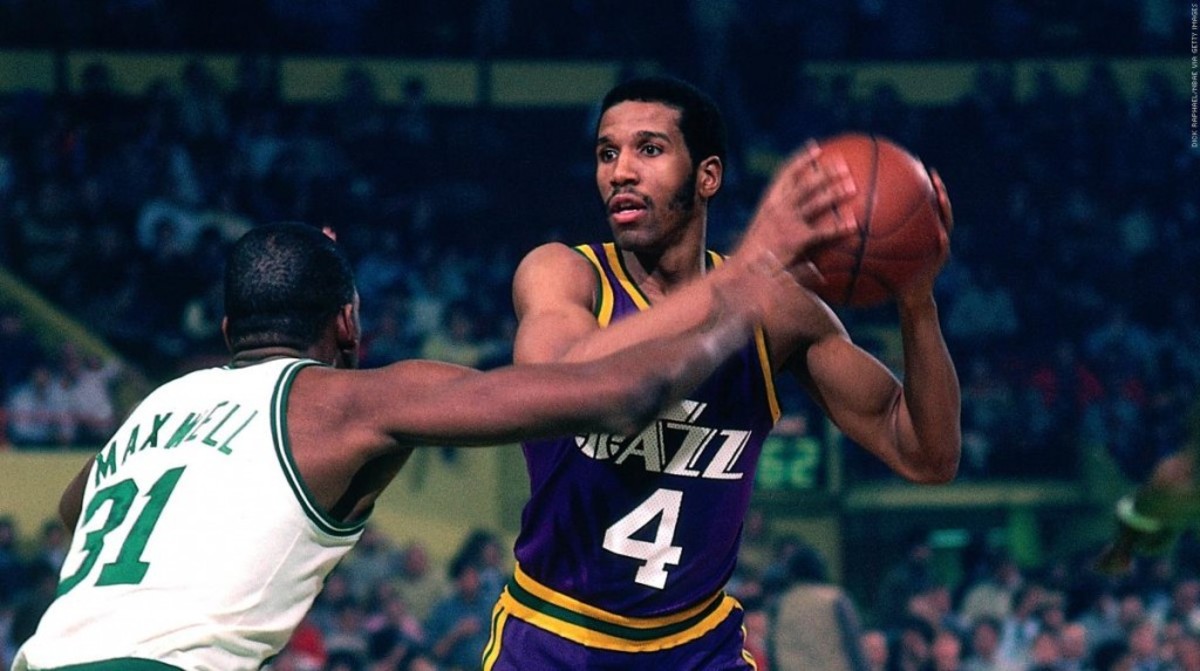
1980-81 – 30.7 PPG
1981-82 – 30.3 PPG
1982-83 – 30.7 PPG
1983-84 – 30.6 PPG
When Dantley joined Utah, he reached his peak for being a dangerous scorer. He led the league in scoring in 1981 and 1984. He averaged over 30 points per game in each season between 1981 and 1984. Because Dantley was on the team, the Jazz was a force to be reckoned with each year.
Dantley missed 60 games in 1983 after tearing ligaments in his right wrist, which is why he played in 22 games. We could technically say that Dantley didn’t average 30 points per game this season because he missed the cutoff for games to be played during the season to be considered for the scoring race.
However, the following year, he won Comeback Player of the Year for his 30.6 points per game. Today, the award is referred to as the Most Improved Player of the Year. Dantley was able to score his previous season’s total, but hold it for 79 games, where he led the league in scoring.
Allen Iverson – 4 Seasons
2000-01 – 31.1 PPG
2001-02 – 31.4 PPG
2004-05 – 30.7 PPG
2005-06 – 33.0 PPG
Iverson’s first 30-point season came in 2001 when he won MVP and led the 76ers to the NBA Finals. Iverson led the team to a 10-0 start and was named a starter for the All-Star game. He won the scoring title and also won the steals title with 2.5 per game. At 6-foot-0, he remains the smallest MVP ever.
Fresh from their Finals appearance, the team had high expectations but finished the season with a 43-39 record. Iverson played just 60 games due to injuries but was able to secure his second straight scoring title. The 76ers bowed out early in the playoffs and Iverson went off on his famous “practice” rant where he said the word 24 times.
Iverson’s career-high was 60 points in 2005, which featured him shooting 24 of 27 at the free-throw line to go with six assists and five steals in a win over the Magic. His fourth scoring title came in 2006, where he averaged a career-high in points. However, the team missed the playoffs for the second time in three years.
Oscar Robertson – 6 Seasons
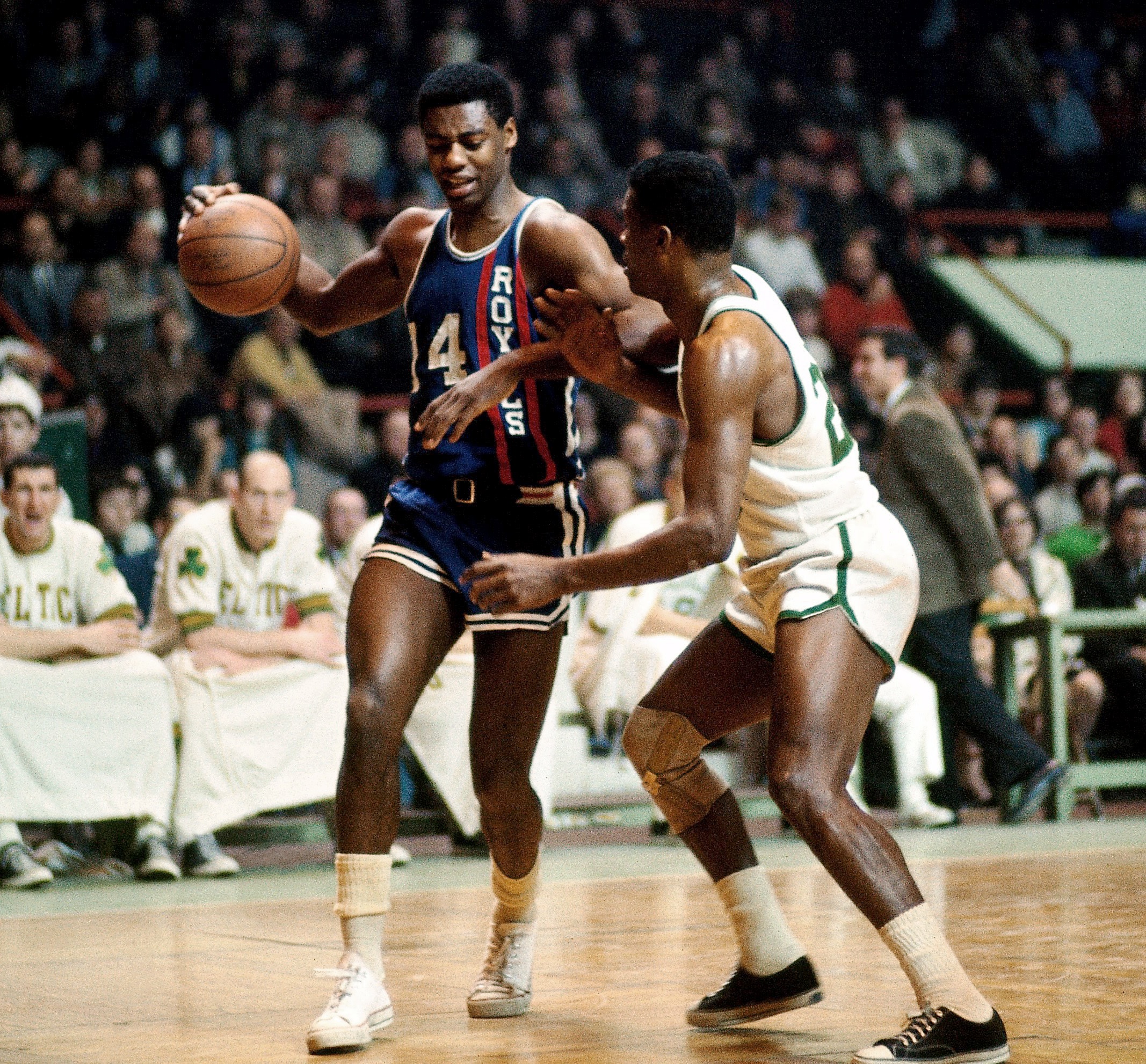
1960-61 – 30.5 PPG
1961-62 – 30.8 PPG
1963-64 – 31.4 PPG
1964-65 – 30.4 PPG
1965-66 – 31.3 PPG
1966-67 – 30.3 PPG
The 30.5 points per game that Robertson averaged in his rookie season remains the third-highest output in NBA history by a rookie. The following year, Robertson averaged a triple-double in a season. That remained a record until Russell Westbrook did it in 2016-2017. Robertson won the MVP in 1964 after one “down year” of missing out. He would then go on to have three more seasons where he would accomplish just that.
The 1964-1965 season saw one of the best individual performances we have ever seen in a game. On December 18, 1964, Robertson recorded a career-high in points with 56 on 17 of 33 shooting to go with nine rebounds and 12 assists in a win over the Lakers. Had he recorded one more rebound, it would have been one of the best triple-doubles he ever did.
The following two seasons would see Robertson average at least 30 points per game, while his 46.0% shooting was a career-high in 1965-1966. Robertson nearly recorded 30 points in 1967-1968, but just missed out by 0.8 points. His 29.2 points, 9.7 assists, and 87.3% shooting at the free-throw line were all-league highs.
Wilt Chamberlain – 7 Seasons
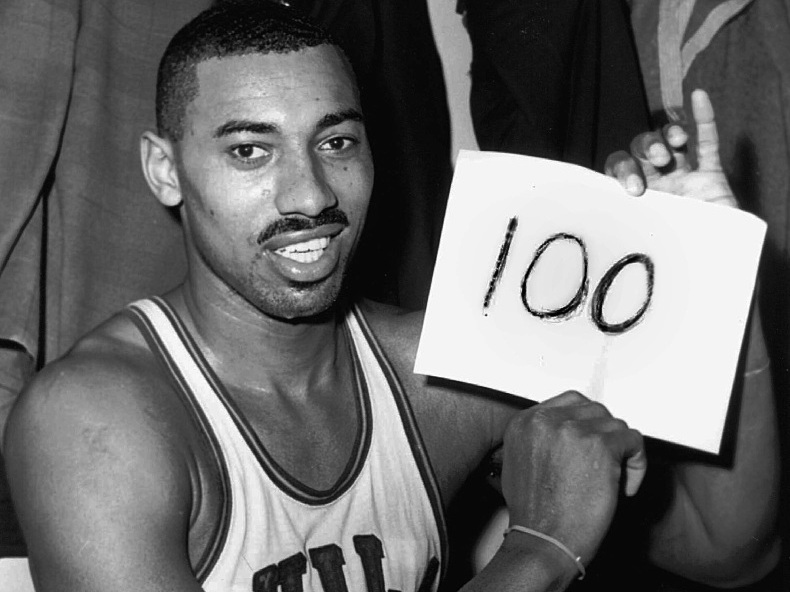
1959-60 – 37.6 PPG
1960-61 – 38.4 PPG
1061-62 – 50.4 PPG
1962-63 – 44.8 PPG
1963-64 – 36.8 PPG
1964-65 – 34.7 PPG
1965-66 – 33.5 PPG
Believe it or not, the great Wilt Chamberlain finished second in the most 30-point seasons. With that said, Chamberlain owns the NBA record for points per game with his 50.4 set during the 1960-1961 season. Chamberlain also owns the record for most points scored in a game with 100. Given all the great accomplishments, it should not come as a surprise that Chamberlain has recorded this many 30-point seasons.
The 1961-1962 season has to go down as one of the greatest individual seasons ever. He averaged 50.4 points per game and 25.7 rebounds. It was the same season he scored 100 points in a game, where he made 36 of 63 shots and made 28 of 32 free throws against the Knicks. His 4,029 regular-season points made him the only player to break the 4,000 point barrier.
The following season was just as impressive given that Chamberlain was also facing some outside factors. The 1962-1963 season saw the franchise bought out by Marty Simmons and the team relocated to San Francisco. Then, Paul Arizin chose to retire and Tom Gola requested a trade. Despite both secondary scorers leaving, Chamberlain averaged 44.8 points and 24.3 rebounds. However, the team finished 31-49.
In 1964, the Warriors lost in the NBA Finals to Bill Russell, while Chamberlain was traded to the 76ers in 1965 midway through the season. He was able to finish the season averaging 34.7 points per game. The final time he averaged at least 30 points, Chamberlain averaged 33.5 points and 24.6 rebounds as he led the 76ers to 55 wins on the season.
Michael Jordan – 8 Seasons
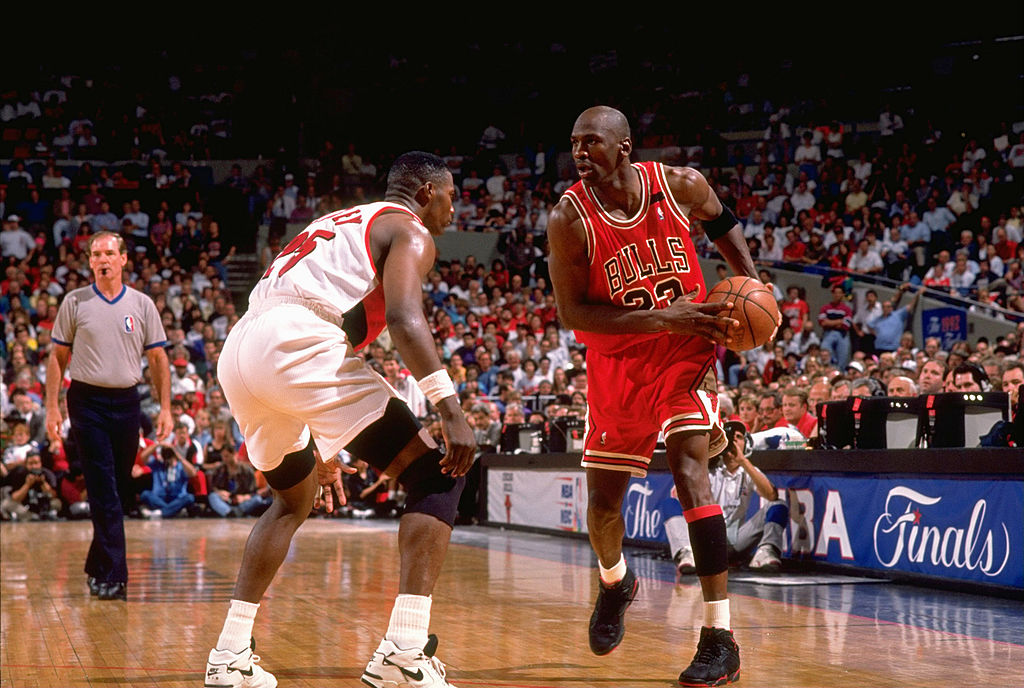
1986-87 – 37.1 PPG
1987-88 – 35.0 PPG
1988-89 – 32.5 PPG
1989-90 – 33.6 PPG
1990-91 – 31.5 PPG
1991-92 – 30.1 PPG
1992-93 – 32.6 PPG
1995-96 – 30.4 PPG
Jordan’s first 30-point season was one of the most prolific scoring seasons in NBA history. He became the only player other than Wilt Chamberlain to score 3,000 or more points in a season. Jordan averaged 31.7 points per game and shot 48.2% from the field. He also recorded 200 steals and 100 blocks, which was the first time any player accomplished anything like that. Despite this epic success, he lost the MVP Award to Magic Johnson.
Jordan led the league in scoring the following season shot 53.5% from the field and won his first MVP Award. He was also named Defensive Player of the Year, averaging a league-high 3.1 steals. The Bulls made the playoffs for the first time in Jordan’s career. After that, Jordan led the league in scoring again with 32.5 points per game where he shot 53.8% from the field. Jordan played time at point guard, where he averaged 10 triple-doubles in 11 games, averaging a line of 33.6 points, 11.4 rebounds, 10.8 assists, 2.9 steals, and 0.8 blocks on 51% shooting during that span.
The 1989-1990 season saw Jordan average at least 30 points per game, a fourth straight season. He shot 52.6% from the field and led the Bulls to the Eastern Conference Finals before falling to the Pistons. The following season began the championship reign, where Jordan won his second MVP and led the Bulls to 61 wins and an NBA championship. In his first Finals appearance, Jordan averaged 31.2 points and 11.4 assists.
Jordan finished with at least 30 points per game in both 1992 and 1993, as well as winning Finals MVP. After taking some time off due to the death of his father, Jordan was at full strength for the 1995-1996 season. There, Jordan reached the 30-point plateau for the eighth and final time. That season, the Bulls set an NBA record for wins in a season with 72 and Jordan would lead the Bulls to their fourth title and his fourth Finals MVP.







